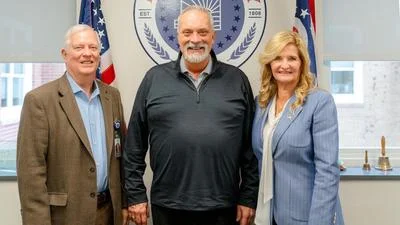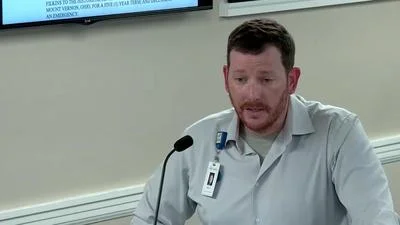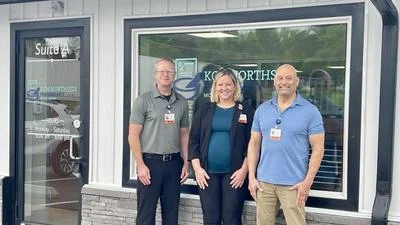Six hours may be the deciding line, the make it or break it point when it comes to surviving a heart attack.
That’s typically the window of opportunity doctors have in which to start treatment and avoid potentially fatal damage to the heart muscle, said Dr. Barry George.
George is a cardiologist with Knox Community Hospital, though he prefers a more colloquial term for his line of work: a commercial and residential plumber.
“By that, I mean that I basically take care of all the blood vessels in the body from the top of the head to the depths of the soles,” he said. “Basically, I treat blockages and hardening of the arteries and that type of thing.”
The tools of his trade are bloodwork, diagnostic imaging, medication and pacemakers as well as surgery, depending on the type of heart disease he’s treating.
Heart attacks can range in severity from a full blown blood clot in one of the coronary arteries supplying the heart muscle to a problem of a lesser degree where you may have a very rapid heartbeat or a very slow heartbeat.
Both conditions call for medical intervention as soon as possible. However, the best time to stall a heart attack is before it happens, George said.
“The real tragedy of heart disease, particularly coronary artery disease, is that patients may have blockages in their arteries and don’t even know it,” he said. “For some patients, the first sign that they have heart disease may be their last.”
Factors such as family history, a sedentary lifestyle and poor diet can hasten the progression of the disease. Plaque or a fatty buildup may occur within a patient’s arteries. For unknown reasons, an artery can fracture, triggering the body’s clotting mechanism.
“If it keeps building up a clot, it can totally block off the artery,” George said. “This can cause a very serious heart rhythm disturbance in which lower chambers start beating really fast.”
Known as ventricular tachycardia, the rapid heartbeat can degenerate into a situation where no blood is being pumped at all. For 60% of patients, this is their first symptom. Within the first hour a serious clot forms, there’s a one in five chance it will disrupt heart rhythm, leading to sudden death unless CPR is administered immediately.
“One of the most tragic stories that I've dealt with is when a spouse has chest pain, shortness of breath and passes out, but the spouse or the loved one or the witness to their situation doesn't know anything to do except dial 9-1-1.”
That delay of starting treatment could prove fatal for the patient or cause brain damage due to lack of oxygen.
“That’s why I always encourage people to get certified CPR training,” said George. “Everybody needs to know how they can save a person's life if that situation ever arises.”
Aside from encouraging the public to learn CPR, George advises screening for heart disease, particularly if there’s a family history. In those cases, patients should be screened by age 35-40.
“We have the luxury nowadays of doing some noninvasive tests that are pretty accurate in picking up coronary disease,” he explained.
One of those tests is the calcium score, which determines cardiovascular health by measuring the amount of calcium stored in the coronary arteries.
“It correlates directly with your risk of having a cardiac event in the future,” he said. “It's literally a 30-second test to do; that’s ultrafast.”







